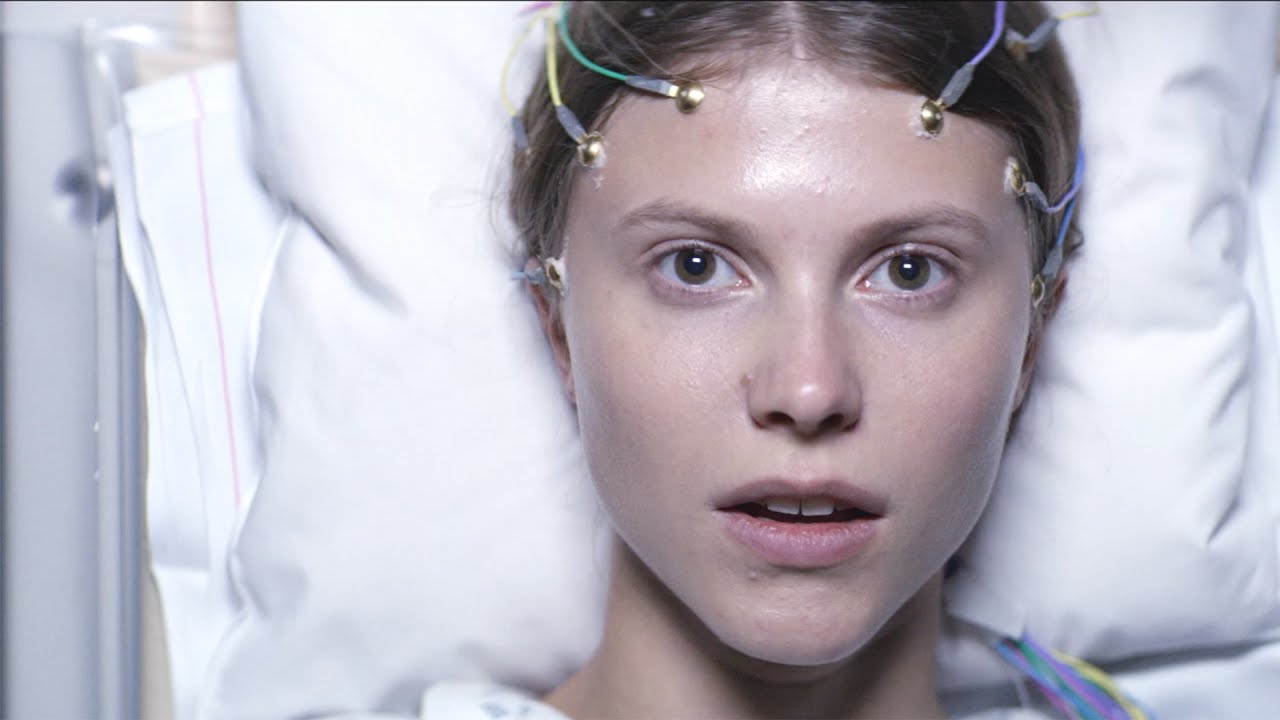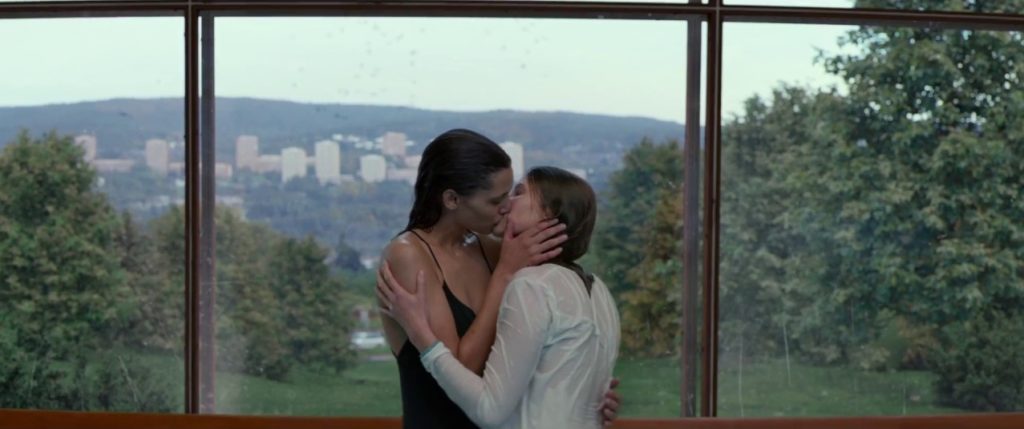
Thelma
Director: Joachim Trier
Writer: Eskil Vogt & Joachim Trier
Starring: Eili Harboe, Kaya Wilkins, Henrik Rafaelsen, Ellen Dorrit Petersen
A review by Michael Walls-Kelly
 Exactly what type of movie Thelma is seems hard to pin down. Is it a romantic film? A supernatural drama? A horror? A superhero origin story? A supervillain origin story? Ultimately the genre is meaningless, the important thing is what the movie is about, which is an exploration of trauma and sexuality.
Exactly what type of movie Thelma is seems hard to pin down. Is it a romantic film? A supernatural drama? A horror? A superhero origin story? A supervillain origin story? Ultimately the genre is meaningless, the important thing is what the movie is about, which is an exploration of trauma and sexuality.
Thelma (Eili Harboe) is a first-year university student in Oslo, Norway. She seems friendly and nice, but also guarded and lonely. Thelma was raised by strict Christian parents, Trond (Henrik Rafaelsen) and Unni (Ellen Dorrit Petersen), who seem loving but formal. When Thelma has a seizure while studying she ends up befriending Anja (Kaya Wilkins) and eventually developing feelings for her. Unfortunately she also develops — or rediscovers — strange, supernatural powers.
Having uncontrollable powers certainly isn’t a new metaphor when it comes to sexuality or trauma. Movies ranging from X-Men to Frozen have explored the concept. It’s a great visual metaphor. Where Thelma sets itself apart is the central relationship.
Harboe is entrancing as the titular lead. It’s a performance that has a lot of layers, she has to be repressed but charming. When Thelma has her episodes, Harboe throws herself into them completely, never looking campy or put-on, but always seeming physically painful. A large portion of the film involves silent, pensive moments with the camera locked in on her face and she never lets it feel repetitive.
It’s no surprise that director Joachim Trier can make a good-looking movie. Oslo, August 31st and Louder Than Bombs were both cinematographically rich films, and the trend continues here. Shots of a snowy field, a boat on a lake or a walk through campus can all look equally striking. My favourite flourish in Thelma is the slow pan-in on a crowd near the beginning. It’s our first time seeing Harboe and it’s slow and deliberate enough that we’re not sure at first who we’re even supposed to be focusing on. This shot is mirrored at the end of the film, implying that we’re all just people in a crowd. This story may be highly specific and supernatural, but it still has universal aspects.

And what’s more universal than growing up? Thelma is away from her parents and starts doing things that are frowned upon, but expected. She tries alcohol, she goes to parties, she falls in love. These are the best aspects of the film, with the mystery of her seizures and powers backgrounded as a slow-burn. There’s an easy chemistry between Thelma and Anja that makes them fun to watch. A scene between the two of them while they’re watching a ballet is one of the best scenes in the film. It’s a perfect blend of performance, editing and tone, melding all of the seemingly disparate genres into an affecting and relatable package.
When the film transitions to its third act and has to come to some conclusion in regards to Thelma’s powers it loses a little bit of steam. It’s performed and executed well, but it feels a little more been-there-done-that than the rest of the film. Even so, the actual finale of the film manages to strike the right end-note to leave us satisfied while keeping the wheels turning.
Like any story about someone overcoming a toxic oppression, it can be both satisfying and frustrating. Which is a good thing. We should absolutely be as frustrated as Thelma is. As the story unfolds we’re stuck in Thelma’s shoes: trying to enjoy this new romance while being confused by these strange, seizure-like episodes. We can relate to Thelma because we want to know more, but we also just kind of want her to keep adorably checking Anja’s Instagram. Ultimately the healthier option is to confront who she is and find a way to deal with it, even if that means learning some hard truths buried under a frozen lake.
Verdict:
Watch it! Thelma is a new addition to one of my favourite recent trends of strong, feminist horror. I’d put it alongside recent favourites Raw and The Witch. Joachim Trier continues to impress me with his work and I’ll make sure to keep an eye out for Eili Harboe, who deserves as much recognition as we can give her for her performance here. The genre may be hard to pin down, but maybe it’s for the best. Do you have a friend that loves horror? Show them this movie. Have a friend that hates horror but loves drama? Show them this movie. Use whichever nebulous label you need to, but be sure that you show someone this movie.



